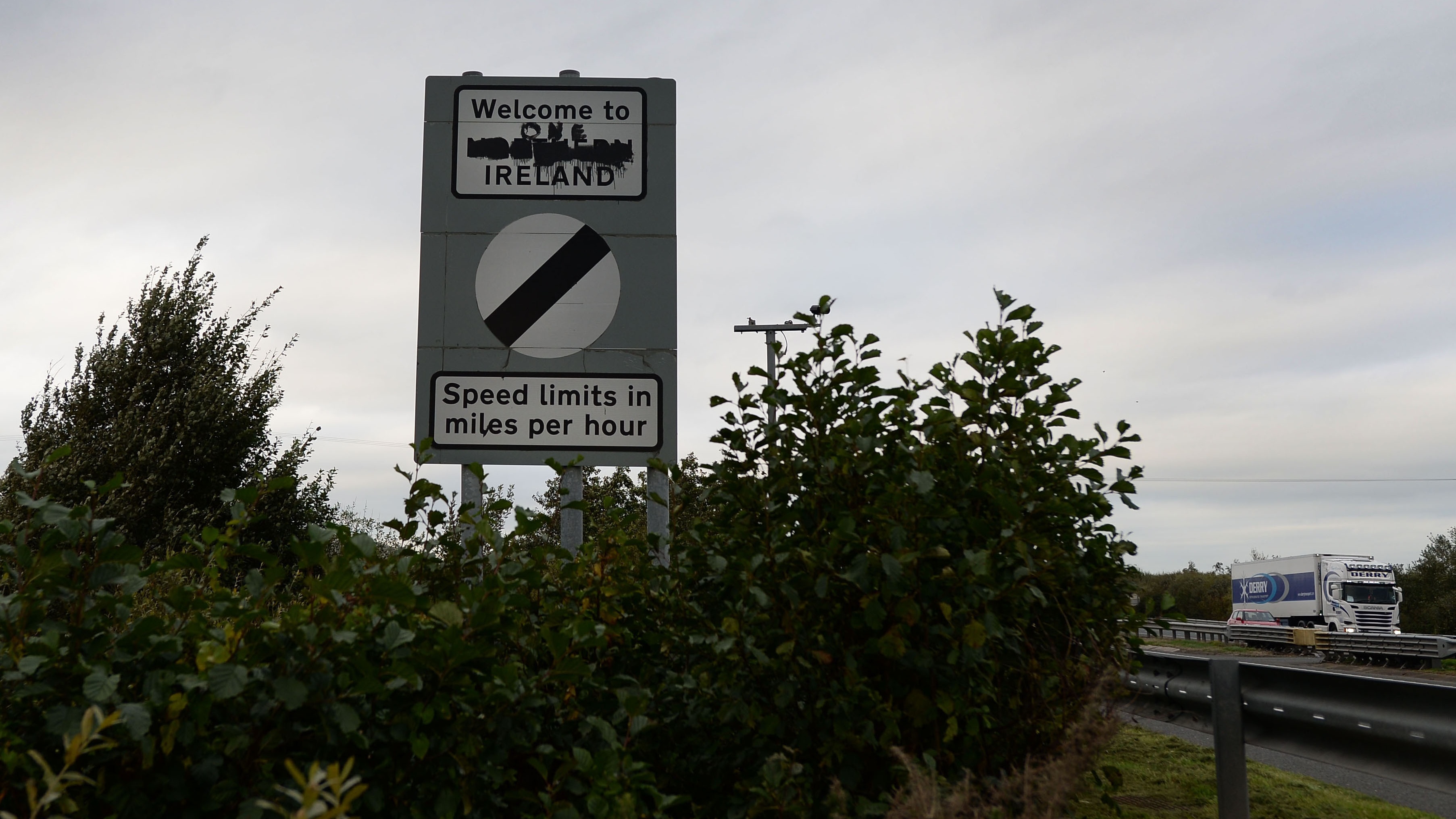Will Brexit lead to a united Ireland?
New polls suggest growing public support for unity between north and south

A free daily email with the biggest news stories of the day – and the best features from TheWeek.com
You are now subscribed
Your newsletter sign-up was successful
The island of Ireland will be united “within a generation” as a result of Brexit, according to the vice-president of Sinn Fein.
Michelle O’Neill said that Brexit was a “catalyst” and taking Northern Ireland out of the EU “against their wishes” would lead to Irish unity, says the Evening Standard.
O’Neill told the paper: “The genie is out of the bottle on Irish unity and it’s not going to go back in. I believe we are very quickly moving, this is an irreversible trend.
The Week
Escape your echo chamber. Get the facts behind the news, plus analysis from multiple perspectives.

Sign up for The Week's Free Newsletters
From our morning news briefing to a weekly Good News Newsletter, get the best of The Week delivered directly to your inbox.
From our morning news briefing to a weekly Good News Newsletter, get the best of The Week delivered directly to your inbox.
“Now is the chance for us all to be generous, for us all to work on the principle point that the future of a new and agreed Ireland has to be one where Irish identity and British identity live side-by-side.”
Northern Ireland voted to stay in the EU by a clear majority, with 55.8% of voters backing Remain in the 2016 EU referendum.
The European Union has said that Northern Ireland would automatically keep EU membership if Ireland united.–––––––––––––––––––––––––––––––For a round-up of the most important stories from around the world - and a concise, refreshing and balanced take on the week’s news agenda - try The Week magazine. Get your first six issues free–––––––––––––––––––––––––––––––
What does Johnson’s Brexit deal say about Ireland?
A free daily email with the biggest news stories of the day – and the best features from TheWeek.com
The Prime Minister’s new Brexit deal includes an alternative backstop arrangement that would see a border between Northern Ireland and the rest of the UK.
The border - effectively a line in the Irish Sea - would only come into play if a permanent trade deal could not be reached with the EU before the end of the transition period.
Goods entering the island of Ireland would be checked for standards and tariffs before their arrival, meaning that trade over the border between the Republic of Ireland and Northern Ireland would continue without disruption.
How has Northern Ireland reacted?
Johnson’s deal has upset the DUP, whose top priority is alignment and unity between Northern Ireland and the rest of the UK.
Rival unionist parties have criticised the DUP for trusting Johnson, saying its actions have damaged the link with Britain, reports the Financial Times.
Jim Allister, leader of the Traditional Unionist Voice, a small DUP breakaway party, said that Johnson’s proposals put the region “in a waiting room for Irish unity with the door locked from the outside”.
And Steve Aiken, leader-elect the Ulster Unionist Party, said the Brexit deal “opens up a whole lot of possibilities”, one of which might be “in that direction”, meaning a united Ireland.
Hundreds of loyalists in Belfast held a community meeting on Monday night to warn Johnson that they “will not tolerate an economic united Ireland”, says Irish News.
Loyalist spokesman Jamie Bryson said there is “immense anger” among unionists around the newly proposed Brexit deal.
A poll commissioned by activist group Our Future Our Choice last year found that 52% of Northern Irish people asked would support a united Ireland after Brexit, with just 39% wanting Northern Ireland to stay in the UK, says the BBC.
Does the Republic of Ireland want Irish unity?
Sinn Fein has said it wants a border poll on Irish unity in the next five years. But vice-president O’Neill says Brexit could mean it happens sooner.
She said that German unification following the fall of the Berlin Wall showed that major political events could speed unity up: “What is important to note is the German example. I think with the Berlin Wall, Germany was reunited within a year… the fact that events overtook and the country was unified within a year.”
“The prudent thing now is to start planning for it,” she said of Irish unity. “If the Irish government does not want to fall into the same trap as the British government has in terms of Brexit, then now is the time to plan and have that conversation.’
An Irish Times/Ipsos Mori poll in March found that 49% of Irish respondents thought there should be a referendum on Irish unity, and 62% would vote in favour.
How could it come about?
The Good Friday Agreement specifies that simultaneous referendums on the question of Irish unity must be held in Northern Ireland and the Republic if public opinion surveys and population trends suggest that voters would back unification.
Last month, a Lord Ashcroft poll in Northern Ireland showed that 51% of the population backed a united Ireland.
“The result underlines what could be at stake in the quest for a workable Brexit solution on the island of Ireland,” said Ashcroft, the former deputy chairman of the Conservative Party.
But a spokesperson for the Irish foreign ministry said: “At present, the Irish government does not believe that a border poll as provided for under the Good Friday Agreement would result in a decision on the part of a majority of the people of Northern Ireland in favour of constitutional change.”
Bill White, chief of Belfast-based polling company LucidTalk, told the FT: “If everything stays as it is and Brexit doesn’t happen — or there’s a settled solution for Northern Ireland — the demand for a united Ireland fades away.”